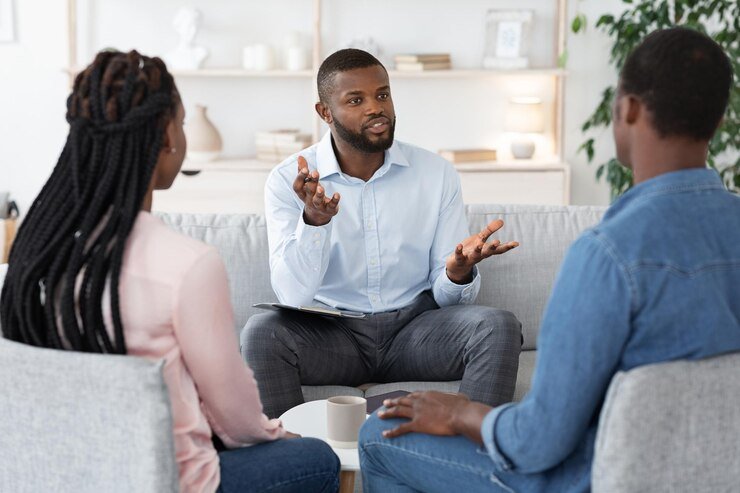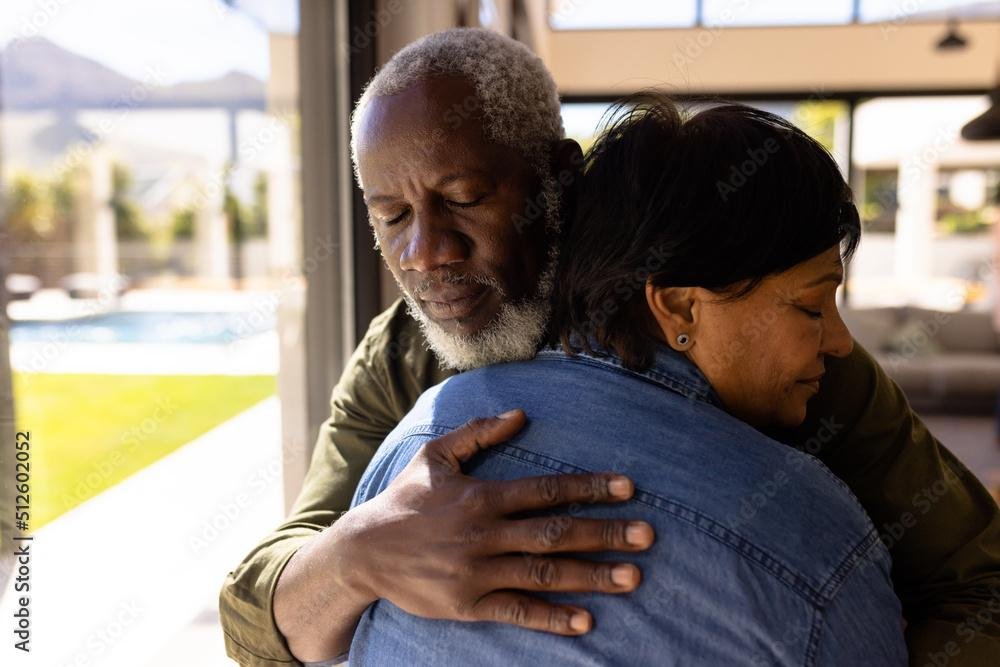Relationship
Qualities to look out for in your marriage counsellor –Part 2

A counsellor should be able to provide strong support
Finding the right marriage counsellor can be a daunting task, but it is a crucial step in building a strong, fulfilling relationship. Last week, we discussed the importance of professional qualifications, rapport building, strong communication skills, and an impartial attitude in a marriage counsellor.
However, there are more essential qualities to consider when selecting a counsellor to guide you. In this second part, we will explore additional characteristics which make a marriage counsellor effective, supportive and trustworthy.
5. Firm ethical standards and professionalism
When it comes to matters as delicate as your relationship, among other things, ensure that your marriage counsellor adheres to a strict code of ethics and professional practice.
Ethical standards ensure that the counsellor’s actions and decisions are guided by a strong moral compass, promoting trust, respect, and fairness.
Professionalism goes hand in hand with ethical standards, as it sets the tone for a productive counselling or therapeutic relationship.
Generally, the counsellor should maintain professional boundaries including confidentiality, respecting your privacy and autonomy, and demonstrating integrity in their practice.
Confidentiality simply means that anything you discuss during your sessions will remain confidential unless there is a legal obligation or an imminent risk of harm. Knowing that your personal matters will be kept private allows you and your partner to be open and honest without fear of judgement or breach of trust.
Remember, finding a marriage counsellor with firm ethical standards and professionalism is crucial for your journey towards a happy and fulfilling marriage.
6. Problem-solving skills
Your counsellor should possess effective problem-solving skills required to help you and your partner identify the underlying issues in your relationship, and develop strategies for resolving conflicts and challenges in your relationship.
7. Empathy and compassion
Look for a counsellor who genuinely cares about your well-being and demonstrates empathy and compassion.
Empathy is the ability to put yourself in another person’s shoes and truly understand their emotions and experiences. On the other hand, compassion goes hand in hand with empathy.
Whereas empathy enables the counsellor to understand your emotions, compassion takes it a step further by prompting them to act on that understanding with kindness and care.
Compassion is the gentle hand that guides you through difficult conversations, allowing you to face the challenges in your relationship with courage and love. A compassionate marriage counsellor will provide strong support, offering a safe haven for you and your partner to express yourselves freely.
Your marriage counsellor should be able to understand and validate your emotions, providing a supportive space for you to explore your concerns. A professional marriage counsellor will try to understand your perspectives, challenges, and aspirations, ensuring that no voice goes unheard.
When choosing a marriage counsellor, remember empathy and compassion are not just nice-to-have qualities; rather they’re essential pillars that contribute to the success of your counselling journey.
8. Cultural sensitivity
Look for a counsellor who has in-depth understanding about your different cultural backgrounds, and is sensitive enough to help you through your diverse cultural beliefs, practices, relationship dynamics and challenges.
Marriage counsellors who are culturally sensitive take the time to truly understand your individual histories, backgrounds, and values, recognising that these factors shape your perspective on marriage (whether good or bad). They should honour you and your partner’s differences and work with you to find common ground, fostering an environment of inclusivity and acceptance.
To be continued …
Source: Excerpts from ‘Preparing for a Happy and Fulfilling Marriage’ Book by REV. COUNSELOR PRINCE OFFEI (Psychotherapist and Marriage Therapist). https://counselorprinceass.wixsite.com/edu-counseling-psych
https://princeoffei22.wixsite. com/website
COUNSELOR PRINCE & ASSOCIATES CONSULT (CPAC)
Relationship
How to Navigate Social Media Boundaries as a Couple
Navigating social media boundaries as a couple can be tricky. With constant access to each other’s lives online, it’s essential to establish clear boundaries to maintain a healthy relationship. Here are practical tips to help couples manage social media use effectively.
1. Have an Open and Honest Conversation
The first step is to talk openly with your partner about social media usage and how it affects your relationship. Honest conversations may feel challenging, but they are essential for understanding each other’s perspectives and setting mutually acceptable boundaries.
2. Be Specific
When discussing boundaries, be clear about the behaviors that bother you and the limits you’d like to set. For example, instead of saying, “You spend too much time on social media,” try:
“I feel neglected when you are on your phone for extended periods during our conversations. Can we set a limit on phone usage during quality time together?”
3. Be Considerate
Consider and respect your partner’s viewpoint. Setting boundaries is not about controlling each other; it’s about creating balance and fostering trust in the relationship. The goal is to maintain connection without letting social media interfere with your bond.
4. Agree on Social Media Etiquette
Social media etiquette guidelines can help couples define what is and isn’t acceptable online behavior. Discuss whether you will follow each other, what kinds of photos you’ll post, and how you will interact with others online. Clear guidelines help prevent misunderstandings and maintain respect.
5. Respect Each Other’s Privacy
Respecting privacy is crucial. Avoid snooping on your partner’s accounts, sharing personal information without consent, or posting photos or updates that may make them uncomfortable. Trust and respect form the foundation of a healthy digital relationship.
6. Don’t Use Social Media as a Measure of Your Relationship
Remember that social media often shows a curated “highlight reel” of other people’s relationships. Avoid comparing your relationship to these selective portrayals. Every relationship is unique, with its own challenges and successes. Focus on what makes your bond special rather than online comparisons.
Conclusion
Setting boundaries on social media is key to nurturing a healthy, happy relationship. Open communication, mutual respect, agreed-upon etiquette, and avoiding comparison with others online are all vital steps in maintaining intimacy and trust in the digital age.
Source: Arkansas Relationship Counselling Centre
Relationship
Vulnerability, Openness Strengthen Relationship Bond

In the realm of romantic relationships, vulnerability and openness are often misconstrued as signs of weakness. However, research in psychology and relationship counselling suggests that embracing vulnerability can be a powerful catalyst for deepening emotional intimacy and strengthening bonds.
The Power of Vulnerability
Vulnerability involves sharing our innermost thoughts, feelings, and desires with our partner, making us susceptible to potential hurt or rejection. Yet, it is precisely this openness that allows us to build trust, foster empathy, and create a sense of safety in our relationships.
When couples prioritise vulnerability, they often experience a profound shift in their relationship dynamics. For instance, a couple I counselled, who were struggling to connect after a recent move, found that sharing their fears and anxieties with each other helped them rebuild their emotional intimacy. By being open about their struggles, they were able to support each other and strengthen their bond.
Benefits of Vulnerability and Openness
- Deeper understanding: By sharing our thoughts and feelings, we gain a deeper understanding of ourselves and our partner.
- Increased empathy: When we are open about our struggles, our partner is more likely to respond with compassion and support.
- Resilience: Vulnerability helps us develop coping mechanisms and learn to navigate challenges together.
- Authentic connection: By being our authentic selves, we create a sense of mutual understanding and connection.
Cultivating Vulnerability in Relationships
So, how can we cultivate vulnerability in our relationships? Here are some practical tips:
- Start small: Begin by sharing your thoughts and feelings in low-stakes situations, like discussing a book or movie. As you become more comfortable, you can gradually share more personal aspects of yourself.
- Practice active listening: When your partner shares their vulnerabilities, respond with empathy and understanding. This helps create a safe space for open communication.
- Be present: Focus on the present moment and try to let go of distractions. This allows you to stay engaged and responsive to your partner’s needs.
- Show appreciation: Express gratitude for your partner’s vulnerability and celebrate their courage in sharing their thoughts and feelings.
In many successful relationships, couples have reported that regular “check-ins” or meaningful conversations help them stay connected and build a stronger bond. By prioritising vulnerability and openness, these couples are able to address life’s challenges together, fostering a deeper sense of connection and intimacy.
Vulnerability and openness are essential components of a healthy, fulfilling relationship. By embracing these qualities, we can build stronger, more resilient bonds with our partners. As we navigate the complexities of relationships, let us remember that vulnerability is not a weakness, but a strength that can bring us closer to ourselves and our loved ones.
To be continued…
Source: Excerpts from “COURTSHIP MATTERS: Keys to a Fulfilling Lasting Marriage” by Rev. Counselor Prince Offei (Lecturer, Published Author, Mental Health Professional, and Marriage Counsellor).
Order the book now:
ORDER BOOK NOW:
https://princeoffei22.wixsite.com/
author https://princeoffei22.wixsite.com/website
COUNSELOR PRINCE & ASSOCIATES
CONSULT (CPAC COUNSELLOR TRAINING
INSTITUTE)






